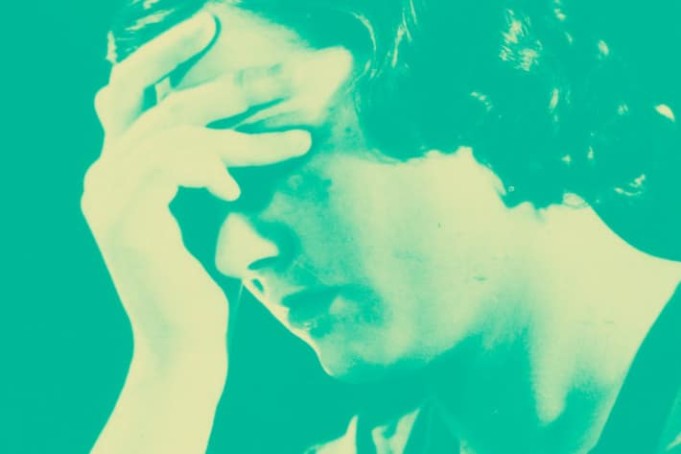Remember when the consummate mantra for the average man was doing whatever made you feel happy? That was before debt. People fell in love with it and it’s killing them. More than 80% of Americans are in debt and dying from it. That includes millennials.
Yep, the babies—the future leaders of the world—suffer from bad economics and debt-induced anxiety. There is a direct link between debt and mental health. Debt wreaks havoc on your finances and your personal well-being. It’s overwhelming and for some, unmanageable.
73% of consumers die in debt while 50% of adults suffer from debt-related mental health concerns. Depression, psychoses, stress, and high blood pressure relate to excessive debt. But you can overcome it. Finding a balance and solution to debt-related mental health lies ahead.
How Debt Affects Mental Health
People who are bogged down in debt are likely to suffer mental health issues—three times more likely. Researchers at the University of Southampton and Kingston University conducted a study on 34 thousand people with unsecured debt. In their research they found:
- < 9% of the people in debt showed no signs of mental health concerns
- > 25% of the participants in debt endured depression, drug addiction, and psychosis.
Not being able to pay bills sparks fear. Fear is anxiety, which induces high-blood pressure. “Adults between the ages of 24 to 32 have higher debt-to-income ratios and poorer health because of it,” reported a Northwestern University study. They have higher blood pressure numbers, leaving them at risk for stroke.
The words twenty-four-year-old and stroke should not happen in the same sentence. But it’s happening and debt is the culprit. Young adults move on from being financial burdens to their parents to be burdens to themselves.
Here are some common mental health problems associated with debt:
- Shame and Indignity – We live in a materialistic society. Money equates to success. A college degree and thousands of dollars in debt do not. Neither does being the owner of a big house and a nice car, and having mounds of credit card debt to go along. Owing money strips people of their pride and leaves them settled in embarrassment.
- Fear and Anxiety – The repo man shows compassion to no man. Fear of losing your home, car, or having your lights turned off is debilitating.
- Depression and Anger – The inability to take care of yourself affects your self-esteem. It’s hard to accept debt, especially if it’s out of control.
- Stress – Stress overshadows any form of joy when debt rules your household. It affects how you perform on a daily basis and how you behave in relationships.
- Psychosis – Stress and anxiety over debt impairs you emotionally. Depending on the severity, people lose contact with reality and fall into deep depression.
You can take action. They are ways to systematically guide you out of debt. But you have to get to the root of the debt and fight your way out.
Causes of Debt
Debt is money you owe. And unfortunately, it’s easy to incur large amounts of it. It does not regard age or responsibility. Every one is liable to go into some form of debt without proper financial education. And sometimes life happens and unexpected events affect your finances.
To understand how to overcome debt, you have to know what causes it and the steps to correct it. Here are some familiar causes of debt.
Improper Budgeting
Every household—married or single—should create a budget. A budget determines how cash you have coming in versus what can go out. Improper budgeting leads to financial mishaps that create debt. Incomplete check registers, throwing away receipts from debit card purchases, and not printing records from online purchases affect how you budget. Lack of savings as well.
Lack of Income
Job loss is one of the number one ways to go into debt. No income means no one gets paid. For many people, job loss drives them to the financial sunken place because they don’t have reserves on hand. As a matter of fact, 34% of Americans with a savings accounts have nothing in them.
Medical Bills, Student Loans, and Credit Cards
- 45% of Americans can’t afford to pay medical debt under $1000.
- The average college student graduates with more than $37K worth of student loan debt.
- The majority of U.S. households have at least $5000 worth of debt.
These three alone diminish opportunities for home ownership and entrepreneurship.
Finding a Solution
Controlling debt protects your credit and your health. When people conquer their financial obligations, the economic and psychological benefits are almost endless. Freedom to save more, spend wiser, and reduce financial anxiety all result from paying off debts. If you are serious about regaining your sanity and getting out of debt, here are some options:
Credit Counseling
Sometimes it’s hard to go about it alone. Credit counseling helps. Often referred to as debt counseling, credit counseling acts as a mediator between you and your collectors. They help you organize your debts, discover a budget, and pay back your debts under manageable constraints, sometimes with less interest and fees.
These nonprofit organizations serve by helping you reduce stress from mounting bills and phone calls from lenders and collectors. Before selecting a credit counseling agency, make sure they’re accredited and check for complaints.
Loan Consolidating
Consolidating debt through a personal loan helps you pay off all of your creditors, reducing multiple monthly payments down to one. Some lenders offer as much as $15,000 up front and work with you if have feeble credit. Personal loans help debtors repair their credit and rebuild their personal credit rating.
Eliminate Extras
Stick to the necessities. Focus on the basics–food, utilities, and transportation. Avoid extra, overhead expenses like WIFI (unless job-related), cable television, coffee runs, and eating out. These can add up to thousands by the end of the year.
Be on time
Start paying your bills on time. It’s responsible and it relieves the anxiety of trying to come up with a payment at the last minute. It also saves money from late fees and extra finance charges—both of which create more debt.
Paying bills on time puts you on the right track to paying them off. Eliminating debt restores self-esteem. Healthy self-esteem depreciates the effects of debt-related depression.
Visit your Primary Care Physician
Part of the solution means redeeming your health—mental and physical. Make an appointment with your physician and discuss your present condition.
Save Yourself
It’s hard to live a normal life when you’re under the stress of debt. There’s no tolerable way to deal with debt except to get from under it. The first step to recovering mentally is by admitting your debt is real. Then get help. Open up to a professional. Set up a financial plan and get your mental health back on track.
Author Bio:
 Naomi C. Kellogg is an emerging screenwriter, content writer, and novelist who writes fiction, nonfiction, and dramas. She’s written for a national magazine, runs a blog, and heads the communications department for a 501c3 corporation. Naomi has a Master’s degree in Fine Arts in Creative Writing and is a member of the National Council of Negro Women (NCNW), St. Petersburg Chapter, where she plans to mentor young African-American females who aspire to write. – naomickellogg.com
Naomi C. Kellogg is an emerging screenwriter, content writer, and novelist who writes fiction, nonfiction, and dramas. She’s written for a national magazine, runs a blog, and heads the communications department for a 501c3 corporation. Naomi has a Master’s degree in Fine Arts in Creative Writing and is a member of the National Council of Negro Women (NCNW), St. Petersburg Chapter, where she plans to mentor young African-American females who aspire to write. – naomickellogg.com












